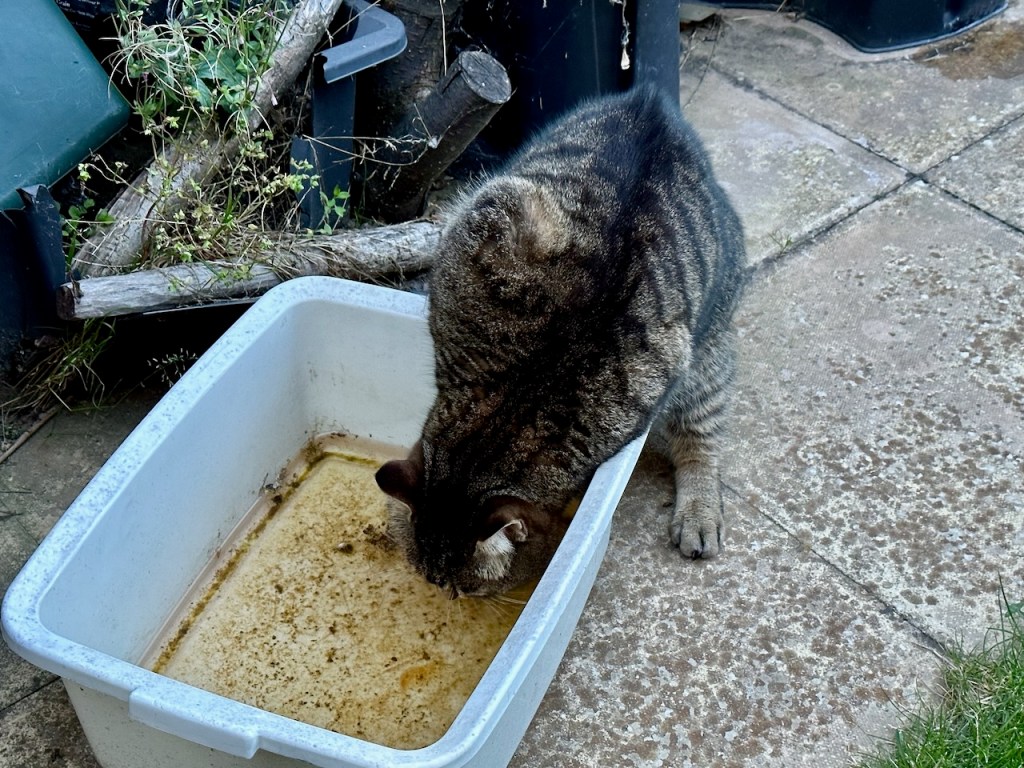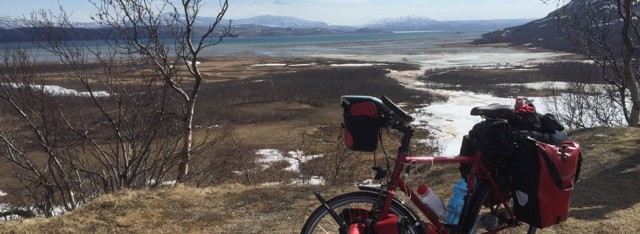It feels to me like we’re stuck. The current political system and western society we live in isn’t fit for purpose in terms of making the difficult decisions needed to secure a liveable future. We are too trapped by corrupt politicians, climate change denying corporations, and a way of life we don’t want to compromise.
We may go down in history as the first civilisation to end itself because it wasn’t deemed economically viable or politically popular to make the changes needed to survive. We won’t save ourselves or most of the species we share the planet with because it’s too expensive, and politicians are worried they might lose an election over it. Sounds crazy, but that’s what seems to be happening. Sunak announced approval of over 100 new oil and gas projects in the North Sea last week, which flies in the face of what climate scientists, the UN, the Government’s own Climate Change Committee, the Intergovernmental Panel of Climate Change, the International Energy Association and many other organisations are saying.
Economically, socially, and politically, are we really set up to deal effectively with the challenges happening now, let alone the challenges that are going to happen next year, in 10 years, in 50 years, due to the climate and ecological crises? Are we emotionally ready for it, or even awake to the fact radical change has to happen if we want our society to survive?
Churchill said “democracy is the worst form of government – except for all the others that have been tried.”
It’s very debatable as to whether we live in a true democracy in this country; we don’t have proportional representation. There are perhaps 2 other countries in Europe that have first past the post systems. I posit this is one of the reasons UK society is increasingly divided, and as to why decisions being made in Westminster make no sense to the majority of the rest of the country and are driving us further towards civilisational collapse.
Would another form of Government be better placed to save us from the mass migration, war, famine, drought, ocean death, food system collapse, economic breakdown, health service demise, panic and societal collapse we’re facing? I don’t know the answer to that question, but the Tory party are really making me start to wonder if we ought to try something else.
And sod the criticism we keep getting about using alarmist language. Have the critics actually looked at what’s happening right now? Wildfires in Canada and across Southern Europe, massive floods in China and the Philippines, harvest failures becoming increasingly frequent, ocean heatwaves killing millions of fish, and temperature records broken on a monthly basis. Let’s not even get started on how species extinction rates are way above the natural baseline. These are not just due to ‘seasonal changes’ or ‘a natural cycle’, this is proven beyond doubt to be down to human caused ‘global boiling’, quoting Antonio Guterres, caused by us burning fossil fuels. Anyone denying this needs to get their heads out of their posteriors, and have motivations thoroughly examined. Criminal charges need to, and no doubt will be made in many cases against politicians, media and journalists deliberately misleading the public, banks like Barclays and JP Morgan financing fossil fuel companies, oil and gas lobbyists and execs, and climate change denying think tanks.

Last week I was interviewed on Texas Public Radio on a show called The Source. I was nervous about being interviewed in my role as a Just Stop Oil spokesperson by the US State built on oil and gas. But…it was a really good experience, with lots of great questions and points from callers. One of the comments made was that the system of Government in the US isn’t fit for purpose either. Generally people get it, they get we’re in a crisis. We turn to our Governments for protection and solutions and they don’t seem to understand, and instead make things worse.
You can listen to the interview here, one of my better ones I think, but it really is a constant learning experience: https://www.tpr.org/podcast/the-source/2023-08-02/who-is-just-stop-oil-and-what-do-they-want
Why did Sunak announce the approval of over 100 new oil and gas projects in the North Sea? Profit? Energy security? Bowing to pressure from the likes of Murdoch and oil and gas companies? By the way this was shortly after his wife’s family business, InfoSys, signed a massive deal worth a reported $1.5bn with BP. I’m sure there is no connection.
It’s worth noting that new North Sea oil and gas:
- Won’t come online for decades, in many cases beyond the Government’s net zero target of 2050, which will be blown by these new fields
- Does nothing in terms of UK energy security; we don’t own it. BP, Shell etc own it and will sell it to the highest bidder
- Is more expensive than renewable energy which is cheaper and quicker to build, but far less profitable for the monsters making billions at our expense
- Will increase emissions which can’t be countered by carbon capture and storage; this is unproven at scale and mostly a way of excusing the stranded assets that stopping new oil and gas will cause, funny that
I love this world, the biodiversity, the people, the cultures, the amazing ecosystems we have that are a result of billions of years of evolution. Are we really going to destroy it all, in a matter of a few hundred years, to make the super-rich even richer, and to preserve a completely unsustainable way of life for people who mostly live in the Global North? The super-rich will only be richer for a short period of time, before the pitchforks arrive at their gated communities demanding justice.
We’re being betrayed by our politicians, much of the media, and by huge corporations, all of whom have been told what will happen if we continue on our current trajectory. The Government and politicians in general seem completely unable to face the truth and do something about it, which can only be because they’re afraid it will lose them the next election, as well impact the profits of vested interests, mixed in with a fair dose of denialism. This seems like madness to me, there won’t be elections or economics if society breaks down. As has been the case for too long it’s all about short term politics and short term decisions when in fact the choice is clear: Change or Die, millions are already dying because of the climate crisis.
What are the difficult decisions I’m talking about? Here are some I think about a lot.
Telling the truth: People deserve to know exactly how dire the crises impacting us are. I’d love to see the same amount of money spent on advertising and greenwashing by fossil fuel companies, and on fossil fuel lobbyists, instead spent on educating the public on the latest science and solutions. Did you know that there were more fossil fuel lobbyists than representatives of the ten nations most impacted by the climate crisis registered to attend COP27; around 636 lobbyists in total. And between January and March this year Government ministers met with oil and gas representatives 54 times. Is it any wonder their priorities aren’t in our best interests? Why isn’t the truth a priority? Because it would cut into profits and would be viewed as unpopular without the right education. Politicians don’t dare tell the truth, they’d be called out, hung, drawn and quartered, and lose the backing of their donors.
Stopping new oil, gas and coal projects: We have around 7 years of reserves in existing oil and gas fields to keep the lights on whilst we transition to a more sustainable way of living using renewables. We don’t need to open new fields if we invest in solar, tidal and wind, including onshore wind which is currently effectively banned in England; Ukraine built more onshore wind-farms than we did (we built 2) in the last few years, and they’re at war. Instead of subsidising fossil fuel companies to the tune of £236m a week, why don’t we direct that money towards renewables which are cheaper and quicker to build, and would create thousands of new jobs? Seems like a sensible decision to me, however that would disrupt the status quo and shift power away from those that currently have it.
Invest in the grid: To get the electricity from where it’s produced from renewable sources we need massive investment in our energy grid and storage. This would counter the argument of not having a reliable and resilient baseline power supply. This would be another decision viewed as unpopular by some, because of unsightly pylons, or trenches being dug for power cables. Again I think this comes down to education; what would people rather have, unsightly power lines or societal collapse? We should have started this decades ago, with a joined up plan, but of course that didn’t happen because it was too difficult, and the Tories would lose votes if they built pylons through the countryside. Oil and Gas mega-corporations would also oppose such developments; I heard recently that the objectives of companies like Shell are to survive for as long as possible versus their competitors, and to maximise their profits.
Insulate and retrofit houses: We need to stop poking round the edges and properly commit to insulating our existing housing stock, before retrofitting air source heat pumps to replace gas boilers. It’s not happening fast enough and there isn’t enough investment. If we implemented a proper windfall tax on energy companies, without loopholes they can offset against, we could fund things like this. It needs a big training programme to produce the skilled workers required, which would mean more jobs. We also need to make sure developers do a better job on new builds with insulation, solar panels made mandatory, and phasing away from gas boilers. This is all pretty difficult if you’re a politician worrying about an election in a few years time; no motivation to do the right thing.
Public Transport expansion and Electric Vehicles: I’m really sorry, we’re being sold a lie that swapping your petrol or diesel car for an electric one will make things better. Electric Vehicles are heavier, have a large carbon footprint when they’re constructed, and are not without particulate emissions which increase air pollution. Their weight makes them more dangerous, and could mean some structures such as multi-storey carparks and bridges aren’t suitable anymore. I’m also not entirely sure what’s going to happen to all the batteries when they reach the end of their useful life, although they’re improving all the time. I like electric vehicles, and think electric bikes are brilliant, but we can’t just swap one bad thing for another to keep the car industry and economy afloat; and where are all those rare earth minerals going to come from exactly? Invest instead in better public transport; trains, buses and trams. Invest in more cycle and foot paths (active transport). Introduce more clean air zones which in turn will mean less deaths from air pollution. Another difficult decision for those in power as in the short term it would no doubt be incredibly unpopular to tell people the age of personal car ownership is over. Just look at the reaction to ULEZ.
Consume less and change the economic model: Our emissions per capita (per the average person) are much higher in the UK and other westernised countries (the Global North) compared with the Global South. We consume far more in terms of single use products, meat, fast fashion and goods produced from fossil fuels. We also travel more, especially by plane. This is a massive privilege and not accounted for in UK emissions a lot of the time, as the goods are produced abroad and emission statistics don’t include shipping or aviation. This is one of the reasons the ‘UK is only responsible for 1% of global emissions, go and protest in China’ argument is so infuriating. It’s based on yet another lie. Selling the idea that we need to buy less stuff, eat less meat, and not go on holiday by plane as much is going to be a tough sell for politicians, so let’s strike this one off the list straightaway. It will however happen of its own accord if we don’t make the changes needed; not having a viable society equals lack of shops, food, and holidays.
On the economic model front we need to stop basing success on GDP (Gross Domestic Product = a monetary measure of the market value of all the final goods and services produced in a specific time period by a country or countries). Instead we could move to doughnut economics to ensure that “no one is left falling short on life’s essentials, and an ecological ceiling, to ensure that humanity does not collectively overshoot the planetary boundaries that protect Earth’s life-supporting systems.” Read Kate Raworth’s book for more information. The current economic model seems to rely on the fiction that our planet has infinite resources, which it doesn’t. We’ve got to move to a sustainable model or we’re just going to burn out; countries in the Global South are already quite literally burning out due to our addiction to GDP.
Sadly changing our economy would upset a lot of rich people, and those in power, and wouldn’t be painless for a lot of the population in the short term. But the long term benefits, and the fact it would help us survive seem, to me, to outweigh that. It would take a pretty charismatic and courageous politician to sell that though.
Refugees: You know how angry people are getting about thousands of migrants and refugees trying to get into the UK? It’s going to get a lot worse as parts of the world become uninhabitable, which is already happening. In the meantime the UK is cutting overseas aid budgets and pulling up the drawbridge. Shouldn’t we be doing all we can to help these people? A lot of the impacts being felt in places like Africa and India, and small island nations, are a result of our colonialist policies of the past, and the fact we’ve been burning fossil fuels for centuries. The people least responsible for the climate crisis are suffering the worst, and are the least able to mitigate and adapt to it. I get people have concerns about how much room we have, and our public services and infrastructure being overwhelmed, however surely we have a duty of care due to our past and present actions? The least we could do is increase our aid budget and cut emissions to give these people a chance in their own countries; they don’t want to have to move, we’re forcing them to. This is a political hot topic and it appears those in power, or aspiring to form the next Government, have decided it would be political suicide to help refugees. History will judge us, if we have one.
Protect our remaining wild spaces and seas, and re-wild: I really don’t get why this isn’t happening. Most of the public clearly support it and it would win votes. Yet we consistently cut down woodland to build houses and industry, ignore protected zones in our seas, and continue to pollute our landscapes, persecute wildlife, and destroy rare habitats. The UK is the most nature-denuded country in Europe. Our national parks are ecological wastelands most of the time. Insect populations are plummeting, an estimated decline of 64% between 2004 and 2022 due to the continued overuse of pesticides. Our waterways are full of sewage, and our fields and ground water full of excess fertiliser and animal faeces from agriculture. We’ve been getting it so wrong. Thankfully there are efforts to stop and reverse the destruction and pollution, and to rewild across large parts of the country. There are some brilliant efforts being made by farmers to change their practices, use less chemicals and not just grow monocultures. However they’re up against greedy developers, a Government that still wants to trash our countryside with new roads, and a general public misconception about what nature looks like and how it should be managed; see national parks comment. And of course big-pharma who really don’t want us to stop using all those nice chemicals they make for fertilisers and pesticides, and who rubbish and persecute soil scientists trying to convince us otherwise.
New roads: The Welsh Government has very sensibly said no to new road building, however we’re still ploughing ahead with it in England. New dual carriageways, bypasses and link road plans abound. I could write an entire post just about this, and how new roads equals more traffic (induced traffic demand) and more emissions, not too mention how the emissions from building them will contribute to breaking our net-zero targets. This is a sensitive issue in Norfolk, where I live, where there are several schemes going through at the moment including the Norwich Western Link road. The link road will destroy rare chalk stream habitat, cost a fortune, increase emissions, air, light and water pollution, all for the sake of cutting minutes of a car journey. Again, we need to stop our car-centric view of the world and invest in public and active transport, then we wouldn’t need all these new roads. This is another political hot potato, with pro-road campaigners and politicians accusing anti-road campaigners of being anti-growth, and not being in line with ordinary working class people. It’s a back and forth argument, however most politicians in England are still on the side for new roads for economic growth.
I really wish we had more joined up thinking across all these challenges. Why can’t politicians see we’re shooting ourselves in the foot? There are no doubt more examples of difficult decisions politicians won’t make, however maybe you could suggest some in the comments. I’m starting to feel a bit burned out about it all.
It does indeed feel a bit hopeless when you look at what we’re up against. How can we hope that any politicians that want to get elected are going to make these difficult decisions? But they could do, if they explained why they’re needed truthfully, why it is 100% necessary for survival, and that it could result in a better way of life after perhaps a tough transition period. We really need to move onto a global war footing to start solving these challenges, with daily updates similar to those we had during the COVID pandemic.
The benefits of all these changes will be massive when they happen. I say when they happen, because they have to happen if we want to survive. Better physical and mental health, more joined up communities supporting one another, and an appreciation of what’s really important in life. And the great news, we can still have things like the internet and lots of the stuff we enjoy today, but in a sustainable and balanced fashion with the rest of the world’s inhabitants, without breaking through ecological ceilings. I dream of nature being allowed to regenerate, clean air and water, thriving habitats and healthy soil, and of species currently struggling or nearing extinction making a comeback. I really believe that one of the reasons so many people are ill at the moment, both mentally and physically, is because we’re totally out of balance with nature. At a subconscious level I think we all know it. We’re all fundamentally a part of nature, not apart from it.
The longer we maintain our current destructive way of life the more difficult and expensive it will get to change things, and the more people and animals across the planet are going to suffer and die. I know we’ve locked in a lot of climate change impacts now as greenhouse gas emissions stay in the atmosphere for so long, but we need to fight against every fraction of a degree in temperature rise, and against every ecological tipping point being reached.
Why is Sunak, who appears to be spineless, so willing to go along with this countdown to extinction? I’m pretty sure his daughters don’t agree. Kudos to the Greenpeace supporters that climbed on one of his houses this week to call him out; they knew he and his family weren’t there, and knew how to climb the building safely. Feels like he’s a child trying to survive politics in an aquarium full of sharks, and he’s hiding in the coral which incidentally is dying due to yes, you guessed it, the climate and ecological crises. Sadly I don’t think Starmer will be much better. He’s already said he will keep the new oil and gas licenses the Tories have approved, and he seems pro most other things that will make matters worse, whilst supporting legislation to silence ordinary people protesting about it. We’re up against huge vested interests, worth billions of pounds, whilst activists only have a fraction of the resources.
That was a heavy but I hope informative stream of consciousness, and I’d love to hear what you think about it all. By way of light relief here are some pictures of Gideon being his usual self, and of a hedgehog that’s visiting me each night.








Finally, just to acknowledge the passing of Sinead O’Connor. Here’s one of my favourite songs of hers. What a powerful voice, full of emotion and conviction. Such a loss. And such a travesty that she was hounded by so many for speaking the truth.
